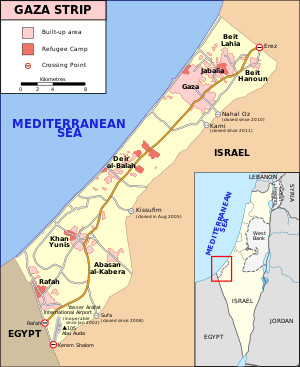This story is a couple of weeks old. I'm sure you remember the
recent outbreak of violence in Gaza, quelled by a
recent ceasefire agreement. What you may not have noticed was that the conflict spilled out onto—of all places—Twitter.
Specifically, the Israeli Defense Force (IDF) and Hamas have been
sniping at each other using the microblog service.
Hamas' claim that it has shelled "occupied" Tel Aviv… comes not from a news outlet, but from Hamas. And another tweet, from
the Israel Defense Forces, assures me that, in fact, the Hamas rocket
never reached Tel Aviv.
Do political actors actually manage to effect outcomes when they use services like Twitter (or Facebook, Tumblr, etc…) during truly violent conflicts like the one that recently occurred in Gaza, or is this just bluster?

Popular social networking has some impact on public opinion, and information on there can shape the sentiment of the mass public in some extent. Indirectly, political actors can actually manage to affect outcomes using services like Twitter, although such effect is not as significant as state action. Once again, liberals would acknowledge the influence of services like Twitter, as they acknowledge the role sub-state actors play in the international system; whereas realists would totally ignore their existence.
ReplyDeleteThere is no denying the unprecedented impact social media now has on the international community. The most obvious example of the successful impact social media had on the international community would be Arab Spring. Social media such as Facebook and Twitter was used inform people of organized uprisings throughout Arab Spring. Social media was also used to document what was going on within the countries involved in Arab Spring and relay it to countries and people all over the world. Although social media was extremely successful of raising awareness throughout Arab Spring, I think the current situation in Gaza in which the IDF and Hamas have been using social media to communicate is another story. Personally, I think the involvement of a state actor, such as IDF or Hamas, in social media delegitimizes its actions because state actors hold obvious bias. Also, I personally think the way IDF and Hamas choose to communicate through twitter is slightly juvenile. Although I do believe both IDF and Hamas will gain popular support through twitter, I do not believe the popular support will be legitimate, especially to the international community.
ReplyDelete